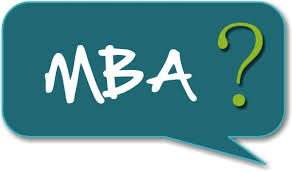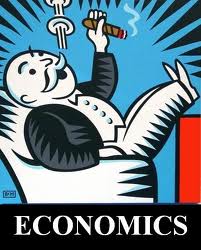HOW RECRUITERS CONTRIBUTE TO APPLICANTS’ FAILURE IN INTERVIEW (II)

with

Moruf Kolawole Nasir
(Experienced HR professional)
nmkolawole@gmail.com; info@jarushub.com
In continuation of our last week’s article “15 Ways Recruiters Contribute to Applicants’ Failure at Interviews”, below is the concluding part of the article.
6. THE KNOWLEDGE OF THE PREDICTOR BIAS: This arises when the interviewer already has knowledge of the candidate’s score/rating on an assessment test that has been shown to be a good predicator of performance. If the candidate did well in such assessment test it will be to his/her advantage at such interview and if he\she did badly, the effect is also negative.
LET JARUSHUB TEAM ASSIST IN WRITING OR REVIEWING YOUR CV FOR YOU
7. THE STEREOTYPING BIAS: This bias occurs when the interviewer assumes that because a candidate belongs to a particular group he/she has a special trait and is better fit for the job. For instance, depriving guys from marketing jobs. Or hiring candidates on the ground of the social clubs/associations they belong to (especially during their undergraduate days).
8. THE RECENCY BIAS: Here, the interviewer tends to remember/recall the most recently interviewed candidate more than the earlier candidates. And what happens in this kind of bias is that the good candidate interviewed last is adjudged the best for the job.
[GOT AN INTERVIEW: ENROL FOR JARUSHUB INTERVIEW PREPARATION SERVICE]
9. SIMILAR TO ME BIAS: This is another bias that many interviewers are guilty of. It occurs when a candidate is rated higher than the others based on the things he shares in common with the interviewer. Whenever the commonness between the interviewer and the candidate beclouds the interviewer’s sense of objectively assessing the candidate’s profile in relation to the job, similar-to-me bias is at work. For instance selecting a candidate because he/she attends the same school with the interviewer or because the candidate is also a fan of the same football club as the interviewer, etc.
10. THE LENIENCY BIAS: This bias rarely occurs but when it does, it occurs when the interviewer treads softly on a candidate for whatever reason, and as such rates the candidate higher than what he/she deserves.
11. THE NEGATIVE EMPHASIS BIAS: This bias occurs when the interviewer is privy to small negative information about the candidate and the interviewer allows such negative information to outweigh the many positive information about the candidate, and based on this, assesses the candidate lower than deserved.
[GET A COPY OF JARUSHUB GUIDE ON CAREERS IN NIGERIA: THE ROAD TO VICTORIA ISLAND]
12. THE NON-VERBAL COMMUNICATION BIAS: Many candidates play this trick on interviewers. It occurs when an interviewer is influenced by body language. For instance a candidate that frowns when responding to questions may be rated lower than the candidate who smiles when responding to questions. It is assumed that the frowning applicant is not sure of his responses. Even if the frowning candidate makes more sense than the smiling one, some interviewers will rate the one who smiles higher. When this happens, it is an instance of the non-verbal communication bias.
13. THE QUESTION INCONSISTENCY BIAS: This kind of bias is the most common among interviewers. This bias arises when candidates are asked different questions. Suffice it to say it is an acceptable bias to enable interviewer go deep into each candidate’s qualifications and experience, just that there seems not to be valid justification for comparison when two people were asked different questions, and yet one is rated higher than the other based on his/her response.
In conclusion, it is important to stress the fact that as humans, it may be a bit difficult for the interviewer(s) to avoid all of these biases, being aware of them can help reduce the impact on selection process.
Always remember “In learning you will teach, and in teaching you will learn”.
Established in March 2013, JarusHub is a Nigerian information hub with focus on career and management. It is rated Nigeria's most authoritative destination for online career resources. It parades an array of Nigerian professionals who share their career experiences with a view to bridging career information gap and mentoring a generation to success. Whether you're a student, a recent graduate or an established professional, or even an executive, you will always find something to learn on JarusHub. All enquiries to jarushub@gmail.com or 0808 540 4500. Facebook: www.facebook.com/jarushub; Twitter: @jarushub or @mcjarus.
Attend JarusHub’s 2024 Seplat Assessment Center Coaching
October 29, 2024
Let us have your say by leaving a comment belowCancel reply
Recommended For You
-
Is Business School Right for You?
July 22, 2020 -
HOW A FINANCE GRADUATE CAN BECOME AN ECONOMIST
February 4, 2015 -
JUST HOW EASY IS IT TO GET A JOB IN THE BIG 4?
August 9, 2016







